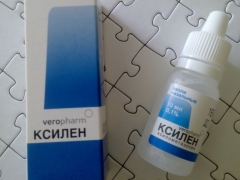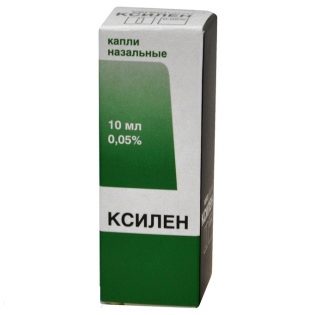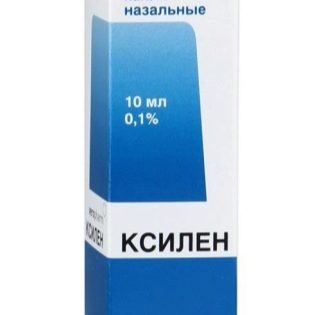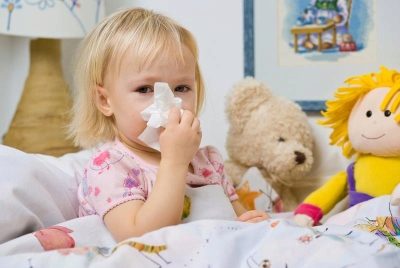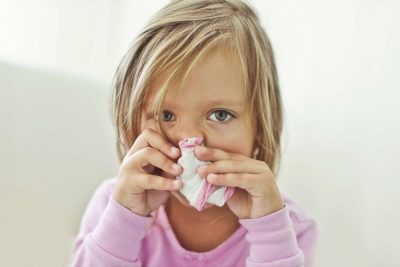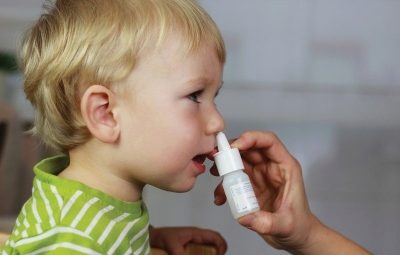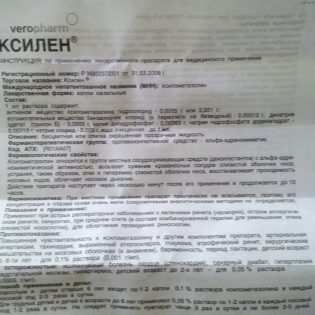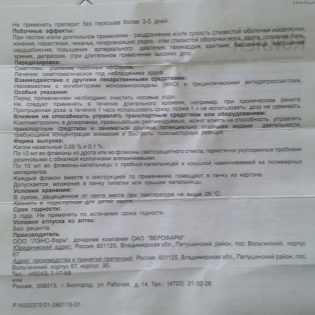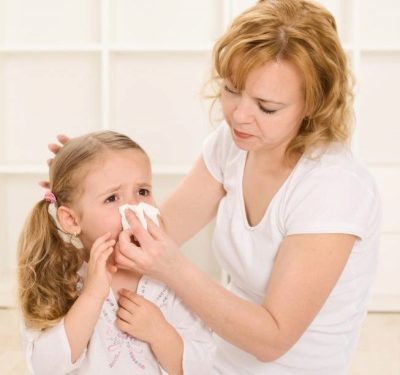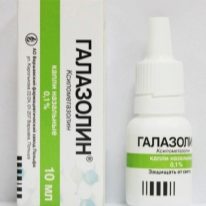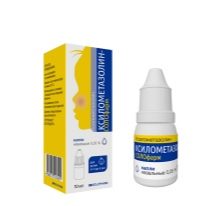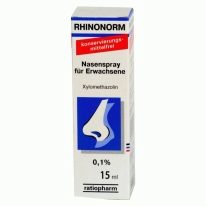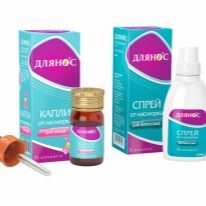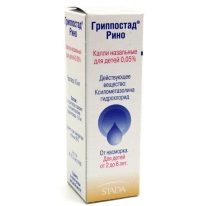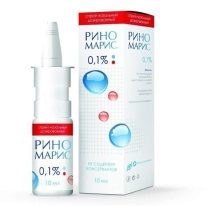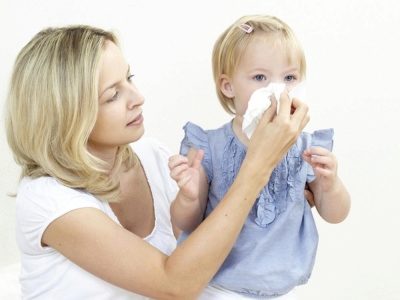Xylene for children
In the treatment of rhinitis in adults are highly in demand different vasoconstrictor agents, for example, Xilen. But is it possible to use such a drug in children and how to do it in order not to harm the child?
Release form
Xylene is produced in the form of drops, as well as in the form of a spray. The drug is represented by a clear liquid with no color or with a slight color.
Xylen nasal drops are sold in 10 ml glass or plastic bottles. The bottle can be equipped with a dropper cap or a pipette is attached to it.
Xylen nasal spray is produced in polymer bottles or dropper bottles of different capacities. One bottle can hold 10, 15, 20 or 30 ml of the drug.
Composition
The main component in drops and spray Xylene is a substance called "xylometazoline hydrochloride". Its 0.05% preparation contains 0.0005 grams per 1 ml, and in every milliliter of the drug with a concentration of 0.1% - 0.001 g. Additionally Xylene contains edetate disodium, sodium chloride, benzalkonium chloride, sodium hydrogen phosphate dodecahydrate, and purified water.
Operating principle
The active substance of any form of Xylene is an alpha adrenomimetic used topically to constrict the vessels of the nasal mucosa. After entering the nasal cavity, the drug eliminates redness and swelling, which contributes to the restoration of the nasal passages, as well as facilitating breathing through the nose.
Xylene starts to act after 3-5 minutes after the introduction into the nose, and the effect of the use of the drug lasts up to ten hours. In this case, the drug is almost not absorbed, so it enters the blood in the minimum amount.
Indications
Xylen is appointed:
- In acute rhinitis, including allergic.
- With ARVI, a symptom of which is a runny nose.
- When nasopharyngitis.
- With sinusitis.
- With otitis media (as one of the means of complex treatment).
Also, the drug is used before rhinoscopy to facilitate the conduct of such a diagnostic procedure.
At what age is it allowed to take
Treatment with a 0.05% xylene solution in children is acceptable from 2 years, and 0.1% of the drug can be used in children 6 years and older.
Use at an earlier age (for example, children up to a year) is possible only after a doctor's prescription.
Contraindications
The drug is prohibited for use in patients with hypersensitivity to its components.
Xylene treatment is not recommended for:
- Atrophic form of rhinitis.
- Hypertension.
- Glaucoma.
- Tachycardia.
- The past operations on the membranes of the brain.
Very careful prescription of medication is indicated for diabetes mellitus and hyperthyroidism. In adults, the drug is contraindicated in carrying a child and breastfeeding, as well as in atherosclerosis.
Side effects
If you use Xylen too often or longer than the time limit recommended by the instructions, this will lead to dryness and irritation of the nasal mucosa, burning sensation, increased secretion and frequent sneezing. In rare cases, the administration of medication to the nose leads to swelling of the mucous membranes, headaches, increased blood pressure, increased heart rate, vomiting, arrhythmias, sleep disturbances, depression, or vision problems.
Another side effect of using Xylene is addictive.Some patients after treatment with this remedy and its abolition have nasal congestion and nasal breathing difficulties. To eliminate this problem, it is advised to dilute Xylene with saline and drip the diluted medication, gradually reducing the concentration of the drug.
Instructions for use
Dosage
- After the appointment of a physician, children of the infant under 6 years old are buried 0.05% of xylene in drops in a dose of 1-2 drops in each nostril. The frequency of application of this form of the drug - once or twice a day.
- For the treatment of children older than 6 years, apply 0.1% medicine in drops in a single dose of 1-2 drops for each nasal passage. You can bury your nose 2-3 times a day. Often the medication is prescribed for 3-5 days.
- A nasal spray with a concentration of 0.05% is prescribed to babies 2-6 years old (for example, at 4 years old), one spray per day. Sometimes the doctor may prescribe a double spraying of this medication.
- Spray with a higher concentration (0.1%) is used in children over 6 years old in a single dose of 1 spray. The frequency of administration of this form of Xylene in the nose - 2-3 times a day.
Cautions
Using Xilen in childhood, it is important to consider the following nuances:
- The nasal passages of the child before the introduction of the drug must be cleaned.
- The drug can not be administered in the nose more than 3 times a day.
- The minimum interval between use of the drug is considered 8 hours.
- If the dose is missed, Xylene should be dripped into the nose within an hour after the required time of administration. If more than an hour has passed, the medication is not administered, and the next time the dose is not doubled.
- The duration of continuous use of the drug should not exceed 5 days.
Overdose
Too high doses of Xylene will increase the side effects of treatment with such drops. A child may have a headache, tachycardia, vomiting. Also, overdosing causes local mucous irritation, sneezing, heartbeat rhythm disturbances, insomnia, and other negative symptoms.
Interaction with other drugs
The drug can not be used simultaneously with some antidepressants and MAO inhibitors.
Terms of sale
Xylene is a non-prescription drug, so it can be freely purchased at a pharmacy. The average price of one vial of nasal drops with a concentration of 0.05% is 30 rubles, and 10 ml of spray with the same concentration of the active compound is 60-70 rubles.
Storage conditions and shelf life
Xylene should be stored away from sunlight at temperatures below +25 degrees. It is important that the medicine cannot freely reach the little child. The shelf life of the drug is 3 years.
Reviews
On the use of Xylene in the common cold in children speak mostly positively. Parents confirm that the drug acts quickly and reduces the discomfort of inflammation of the nasal membrane.
According to moms, in most cases, children tolerate Xylen well. Such adverse reactions as sneezing, irritation of the mucous membranes, increased rhinitis, and others, are found only with a high dose of medication or non-compliance with other recommendations for its use.
Analogs
Replacing Xylene can be another drug with the same active substance, for example:
- Drops or gel Galazolin;
- Spray or drops Xymelin;
- Spray Tizin Xylo;
- Spray Snoop;
- Spray Otrivin;
- Drops or spray Farmazolin;
- Spray Rinonorm;
- Drops or spray Xylometazoline;
- Drops and spray Rhinostop;
- Spray and drops for wear;
- Spray Renorus;
- Spray Renomaris;
- Drops Sanorin xylo;
- Spray and drops of Suprima NOZ;
- Drops and spray Grippostad rino.
Also, a doctor may prescribe other vasoconstrictor medications for a child with a runny nose (Adrianol, Nazivin, Knoxprey, Nazol, Sanorin), inhalation, multicomponent drops (including Dioxidine, Dexamethasone and other drugs), washing with saline, drugs based on sea water (Aqua Maris, Morenazal, Marimer, Fluimarin) and others.
In this case, any medications and procedures in childhood should certainly be discussed with the pediatrician.It can be dangerous to make a child with rhinitis inhalation or drip nose with complex drops made at home on their own.
You will learn more about vasoconstrictor preparations by looking at Dr. Komarovsky’s program.
